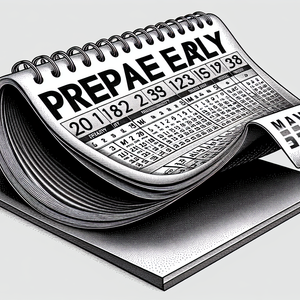Beyond the Lab: The Personal Impact of Travel on Scientists

For many clinical lab scientists, the decision to travel for work is fueled by a desire for adventure, professional development, and the chance to make a difference in underserved areas. Each new assignment invites them to step outside their comfort zones, adapt to different healthcare systems, and engage with diverse patient populations. For instance, a clinical lab scientist might find themselves working in a bustling urban hospital in New York City one month and in a remote clinic in rural Africa the next. This constant change fosters resilience and adaptability—traits that are not only vital in their scientific work but also contribute to their personal evolution. The ability to navigate unfamiliar environments helps them develop a flexible mindset that is crucial in both professional and personal domains. This transformative journey often serves as a catalyst for self-discovery, pushing them to confront their biases and embrace new perspectives.
Cultural Exchange: Learning Beyond the Lab
Traveling for work places clinical lab scientists in the midst of cultural exchanges that can be both enriching and challenging. As they navigate different customs, languages, and healthcare practices, these scientists develop a deeper understanding of global health issues and the socio-economic factors that affect patient care. For example, a lab scientist working in a developing country may witness firsthand the struggles faced by healthcare professionals in resource-limited settings. Such experiences often ignite a passion for global health advocacy, inspiring them to bring back knowledge and perspectives that can influence practices in their home countries. These insights help them appreciate the complexities of healthcare delivery and encourage them to advocate for policies that address systemic inequities. By understanding the unique challenges faced by diverse populations, they become more effective in their roles, ensuring that their scientific expertise is applied in culturally sensitive ways.
Building Connections: Friendships Across Borders
One of the most rewarding aspects of travel for clinical lab scientists is the relationships they build along the way. Collaborating with local healthcare professionals fosters a sense of camaraderie and mutual respect, leading to lifelong friendships that transcend borders. These connections provide invaluable support and insight, enhancing their professional network and enriching their personal lives. A lab scientist may find themselves sharing meals with colleagues from diverse backgrounds, exchanging stories, and learning from each other's experiences. Such interactions not only broaden their horizons but also create a sense of belonging in an otherwise transient lifestyle. For instance, participating in local traditions or community events can deepen their understanding of the cultures in which they work, cultivating empathy and respect that influences their professional practice.
Transformative Experiences: Growth Through Challenges
Traveling as a clinical lab scientist comes with its share of challenges, from adapting to new technologies and protocols to managing the emotional toll of working in high-stress environments. However, overcoming these obstacles is often where the most significant personal growth occurs. For instance, a scientist faced with a sudden technical failure in a remote lab may need to rely on their problem-solving skills and ingenuity to find a solution. This experience not only enhances their technical competence but also boosts their confidence and self-efficacy. Many scientists report a newfound appreciation for their work and the impact they can have on patient care. They often return home with a renewed sense of purpose, eager to apply their experiences to improve laboratory practices and patient outcomes in their own communities. This cycle of learning and growth ultimately enriches their contributions to the field, encouraging a culture of continuous improvement.
The journey of a clinical lab scientist who travels for work is much more than a professional endeavor; it is a transformative experience that shapes their identity and worldview. Through cultural exchanges, the building of global connections, and the challenges they face in diverse settings, these scientists emerge not only as skilled professionals but also as empathetic individuals with a broader understanding of the world around them. As the demand for travel positions in laboratory science continues to grow, it is essential to recognize the profound impact that these experiences have on the personal and professional lives of clinical lab scientists. Embracing the adventure of travel ultimately enriches their contributions to the field, fostering a new generation of healthcare professionals who are equipped to make a meaningful difference in global health. Their journeys remind us that the pursuit of knowledge and the drive to serve are universal goals, transcending borders and cultures.
Traveling Clinical Lab Scientist
Travel nursing agencies, international NGOs, hospitals with global outreach programs
Core Responsibilities
Conduct laboratory tests and analyses in various healthcare settings, adapting to differing protocols and technologies.
Collaborate with local healthcare teams to deliver high-quality diagnostics and ensure compliance with international standards.
Document findings and maintain accurate records of laboratory work across diverse environments.
Required Skills
Proficiency in multiple laboratory techniques, including hematology, microbiology, and molecular diagnostics.
Excellent communication skills to interact effectively with diverse teams and patients.
Experience in troubleshooting and problem-solving in resource-limited settings.
Global Health Laboratory Consultant
WHO (World Health Organization), CDC (Centers for Disease Control and Prevention), international health NGOs
Core Responsibilities
Provide expert guidance on laboratory practices and policies to healthcare organizations in developing countries.
Assess laboratory infrastructure and recommend improvements to enhance efficiency and effectiveness.
Lead training sessions for local lab staff on advanced laboratory techniques and quality control measures.
Required Skills
Strong background in clinical laboratory science with a focus on global health issues.
Experience in project management and capacity building in low-resource environments.
Cultural competence and adaptability to work in diverse settings.
Laboratory Quality Assurance Specialist
International health organizations, private laboratories, global healthcare companies
Core Responsibilities
Develop and implement quality assurance protocols for laboratories in various international locations.
Conduct audits and assessments to ensure compliance with regulatory standards and best practices.
Collaborate with laboratory personnel to identify areas for improvement and implement corrective actions.
Required Skills
In-depth knowledge of laboratory accreditation standards (e.g., ISO, CLIA).
Strong analytical skills and attention to detail for identifying and resolving quality issues.
Experience in training and mentoring laboratory staff on quality assurance practices.
Field Epidemiologist
CDC, WHO, international public health organizations
Core Responsibilities
Investigate and analyze health data in various regions to track disease outbreaks and assess laboratory practices.
Work with local health officials to implement disease control measures and improve laboratory testing capabilities.
Train local health workers on epidemiological methods and data collection techniques.
Required Skills
Advanced degree in epidemiology, public health, or a related field with laboratory experience.
Strong statistical analysis skills and proficiency in software like SAS or R.
Ability to work under pressure in high-stress environments and adapt to changing situations.
Remote Laboratory Technician
Telehealth companies, rural healthcare networks, international aid organizations
Core Responsibilities
Support remote healthcare facilities by performing laboratory tests and analyses via telehealth platforms.
Maintain laboratory equipment and ensure the integrity of samples sent for analysis.
Collaborate with healthcare providers to interpret laboratory results and provide consultative support.
Required Skills
Extensive knowledge of laboratory procedures and remote diagnostics technology.
Strong IT skills for managing telehealth platforms and remote communication tools.
Self-motivated and capable of working independently in isolated environments.


